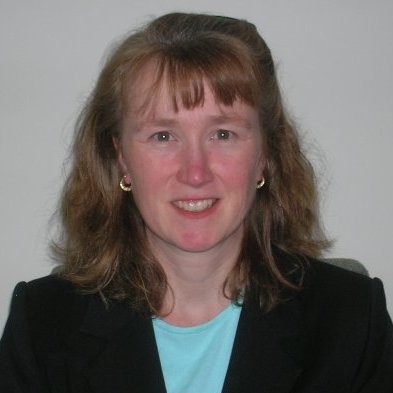 Angela Drew
Angela Drew
Director, Regulatory Affairs, Australia
A job that combines teamwork and independence
I loved science in high school; I couldn’t imagine going into any other field. And I was always interested in cancer. I did my PhD in Australia and had begun my career as a researcher when I met an American research group I wanted to work with at a conference in Barcelona. They were in Cincinnati, so I moved. Initially, it was a culture shock, but I adapted and ended up staying for quite some time.
Originally, I was researching inflammation, but I migrated to the intersection between inflammation and cancer, specifically focusing on ovarian cancers. I felt like I was in my element; I am fortunate to be recognized by the American Cancer Society as a Lifetime Scholar for the work I did on ovarian cancer. After about 10 years, when the grant funding situation became tight, I started looking to move to industry.
I was fortunate that there was a regulatory consulting company a few minutes from my house—and that they hired me. That company, which later became part of Premier Consulting, taught me everything I know about the regulatory side of the industry. It’s a different set of rules, a different audience, a different way of thinking. I realized I liked it better than my academic work.
We have the greatest concentration of experts in the 505(b)(2) regulatory pathway in the world. The fun part is negotiating with the FDA based on information that already exists for a drug, to achieve a better outcome for sponsors. Recently, 505(b)(2) has become the pathway with the most approvals per year by the FDA—and we probably meet with the FDA more times per month regarding 505(b)(2) programs and combination products than any other consulting company.
That means I am always learning new things, working on new therapeutic areas, updating my knowledge about the FDA’s thinking. It keeps you on your toes!
During my time in the U.S., my mother developed ovarian cancer, so I moved back to Australia. I was able to continue working remotely with Premier Consulting (which was rare then), and because of the time zone differential my manager eventually organized a position for me where I could work my own hours. I was just so lucky. I’ve been here altogether for 12 years now.
The work we do is absolutely a team effort. I am the strategy lead, but we need input from a full array of subject matter experts—manufacturing, clinical requirements, nonclinical requirements, pharmacokinetics, regulatory. I just pull it all together and make sure every team member knows and is on board with what the others propose. I am fortunate to be in the position of pulling together everyone else’s brilliance.
Working across multiple times zones takes a kind of collaborative client-focused nature. Inevitably, a sponsor will present a challenging situation that requires input from all of our innovative thinkers. There is fabulous team support, along with plenty of independence. It’s the kind of job where, if you are making the right calls, you can be handed as much responsibility as you want to take on. Teamwork and independence—I love that.
I work on about five or six development programs for sponsors at any one time. Typically, half are in the U.S., half in APAC regions. Many are small biotech companies, and their futures hinge on the outcome of the FDA meetings we conduct on their behalf. We have an understanding of what the FDA will find acceptable, so we propose the most advantageous possible program for the client. The FDA is very data driven, and many of us in 505(b)(2) come from academia, so we especially enjoy delving into the data. It’s such a pleasure to say to a client, “We think you could reduce the number of studies in your development program, or use innovative approaches such as modeling.” Obtaining a great outcome for a sponsor is rewarding for so many reasons, but primarily because we are helping to bring life-saving drugs to patients who need them.